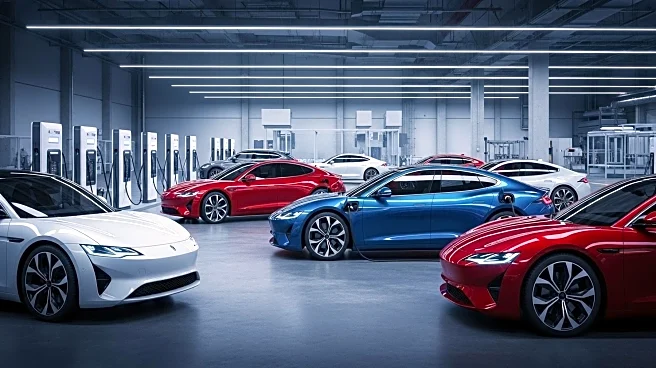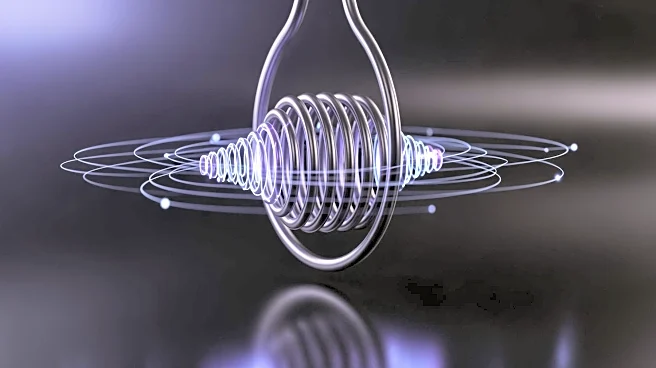What's Happening?
Hyundai Motor Company has announced a comprehensive growth strategy aimed at significantly increasing its production and sales in the United States. During its CEO Investor Day in New York, Hyundai revealed plans to introduce a range of new electric vehicles (EVs) and hybrids, including its first midsize pickup truck tailored for the U.S. market. The company aims to sell 5.55 million vehicles globally by 2030, with 3.3 million being electrified models. Hyundai plans to ramp up production at its Metaplant America EV facility in Georgia, investing $2.7 billion to create 3,000 jobs and produce 500,000 hybrid and EV models annually by 2028. By 2030, Hyundai expects over 80% of vehicles sold in the U.S. to be manufactured domestically, increasing its U.S. supply chain sourcing from 60% to 80%.
Why It's Important?
Hyundai's strategy reflects a significant shift towards electrification and domestic production, aligning with broader industry trends and regulatory pressures in the U.S. The move to increase local manufacturing and supply chain sourcing is likely to bolster Hyundai's competitiveness in the American market, potentially reducing costs associated with tariffs and import duties. This expansion could have substantial economic impacts, including job creation and increased investment in U.S. manufacturing infrastructure. The introduction of new EVs and hybrids also positions Hyundai to capture a growing segment of environmentally conscious consumers, contributing to the global push for reduced carbon emissions.
What's Next?
Hyundai's plans to expand its U.S. production capacity and launch new vehicle models are expected to unfold over the next few years, with significant developments anticipated by 2028. The company will likely face competition from other automakers also investing in electrification and domestic production. Stakeholders, including local governments and industry partners, may respond positively to Hyundai's investment in job creation and manufacturing. The success of Hyundai's strategy will depend on its ability to navigate supply chain challenges and consumer demand shifts, as well as its execution of technological advancements in EVs.
Beyond the Headlines
Hyundai's focus on electrification and domestic production may influence broader industry trends, encouraging other automakers to adopt similar strategies. This shift could lead to increased innovation in EV technology and infrastructure development, such as charging networks. Additionally, Hyundai's investment in the U.S. may have cultural implications, strengthening ties between South Korea and the U.S. in the automotive sector. The company's commitment to sustainability and electrification aligns with global environmental goals, potentially impacting public policy and consumer behavior.











